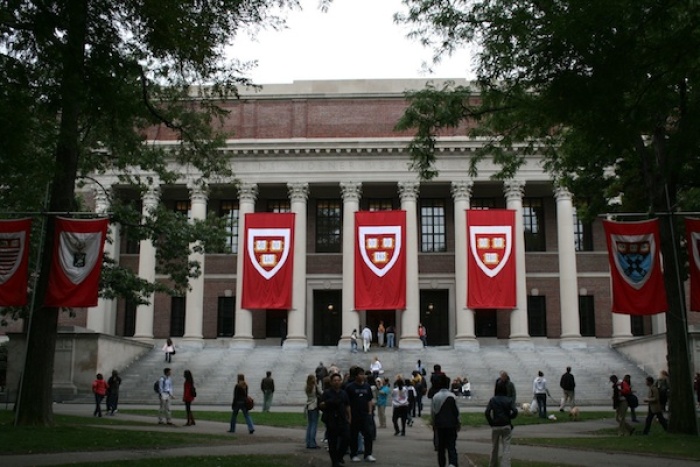Most Asian Americans don't support affirmative action, poll finds

A new poll suggests that more than half of Asian Americans say they would support a potential U.S. Supreme Court decision to "ban" affirmative action policies as the nation's higher court weighs arguments in cases involving admissions policies at two universities.
The Seattle, Washington-based group Intelligent published the findings Tuesday of a sponsored poll conducted by Pollfish on Nov. 9 of 1,250 Asian Americans, with a margin of error of 3 percentage points.
The survey was conducted over a week after the Supreme Court heard oral arguments challenging the admissions policies at the University of North Carolina and Harvard University, which take racial identity into account as a factor.
According to the survey, 53% of Asian American respondents said they would support the "Supreme Court banning affirmative action," and 26% said they would oppose having the high court ban affirmative action policies.
Eighty-one percent of Asian American respondents who oppose affirmative action say "it's a racist policy." Thirty percent said it "hurts Asians' chances of getting into their preferred schools," 32% said it "increases racism toward Asians," and a quarter (25%) say it "Furthers Asian stereotypes."
The poll of Asian Americans also found that 49% of respondents oppose affirmative action in general, 39% consider affirmative action racist, and 72% said the affirmative action debate impacts how they vote.
The survey also found that older Asian Americans, especially those over 54, were more likely than younger generations of Asian Americans to oppose affirmative action.
About 61% of Asian Americans over 54 said they either somewhat oppose or strongly oppose affirmative action, while 45% of respondents aged 18-24 said the same.
Dennis Consorte, an Asian American small business consultant, recounted his family's experience with affirmative action in college admissions.
"Several years ago, when I first heard the news about Harvard admission standards favoring people of color to the exclusion of Asians, I recommended to my niece and nephews that they check off 'other' instead of 'Asian' on their college applications," Consorte was quoted as saying in the report.
Consorte said he has no issues when an "applicant of color" is chosen over an Asian applicant when they are "equally qualified." But he stressed there is a difference when someone is chosen "solely based on their ethnicity."
"[I]t would be recognized immediately as racist," Consorte said. "Supporters of affirmative action often say that it is not racist because you are favoring the group that is less powerful. The same can be said for favoring women candidates over men. While most can understand the logic, many would disagree with that notion, and instead suggest that all forms of discrimination are wrong, particularly when enforced through legislation and government funding.”
The survey was conducted shortly after the U.S. Supreme Court heard oral arguments challenging the admissions policies at the University of North Carolina and Harvard University, which take racial identity into account when students apply.
Patrick Strawbridge, the attorney for Students for Fair Admissions, the legal group challenging the universities' admission policies, told the Supreme Court justices on Oct. 31 that "racial classifications are wrong."
"Whatever factors the government may use in deciding which jurors to sit, who you may marry, or which primary schools our children can attend, skin color is not one of them," he said.
Solicitor General Elizabeth B. Prelogar, who represented the Biden administration in support of UNC and Harvard, said during oral arguments that the policies are necessary to help prepare students for life in a racially diverse United States.
"A blanket ban on race-conscious admissions would cause racial diversity to plummet at many of our nation's leading educational institutions," Prelogar stated before the high court.
"Race-neutral alternatives right now can't make up the difference, so all students at those schools would be denied the benefits of learning in a diverse educational environment. And because college is the training ground for America's future leaders, the negative consequences would have reverberations throughout just about every important institution in America."
In 2003, the Supreme Court ruled 5-4 in the case of Grutter v. Bollinger that colleges could use race as a factor in admissions as long as it was only one of the multiple parameters considered.
Writing for the majority, Justice Sandra Day O'Connor concluded that "race-conscious admissions policies must be limited in time" and argued that "25 years from now, the use of racial preferences will no longer be necessary to further the interest approved today."





























